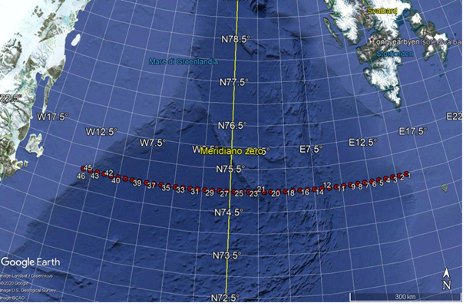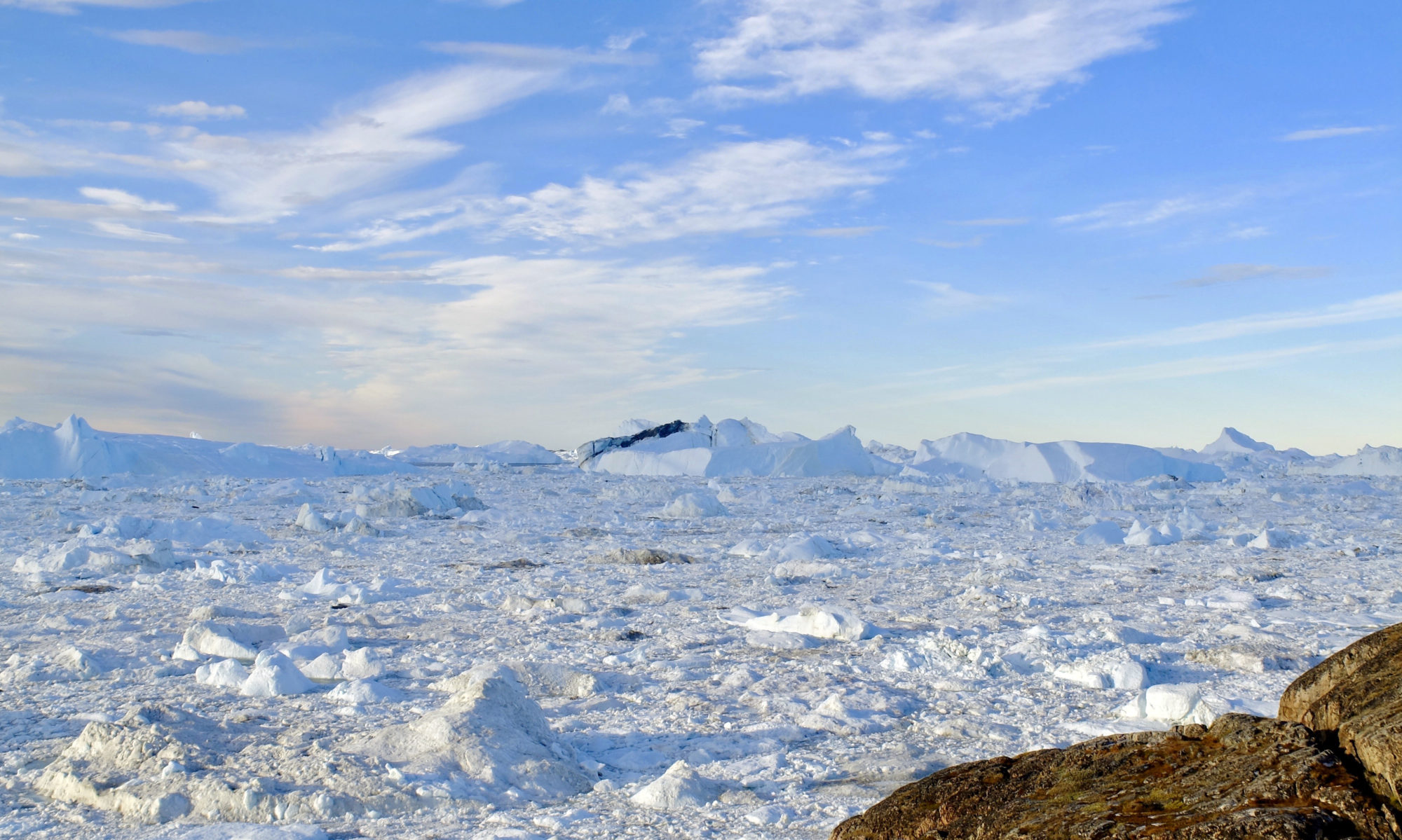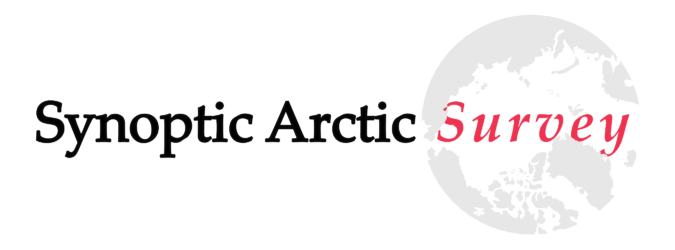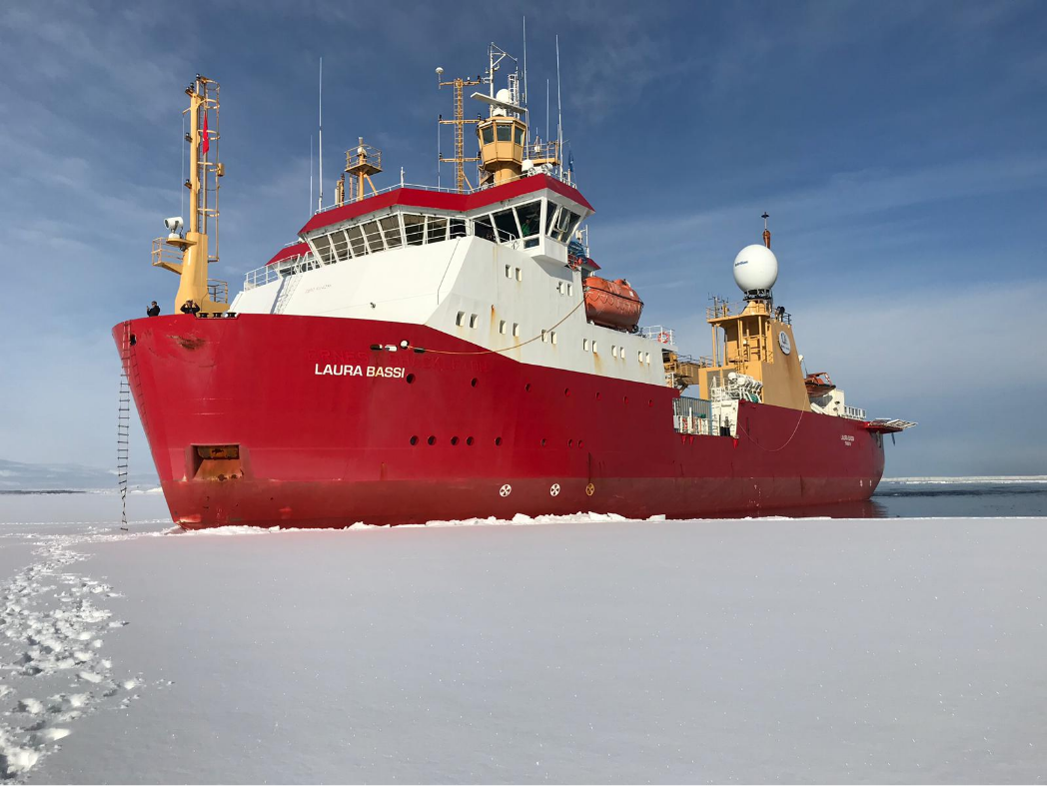At the Geophysical institute we have an open permanent position as Project Manager (Advisor) for the international secretariat of the Synoptic Arctic Survey, hosted by Norway and the UiB. The position is jointly funded by strategic allocations from the UiB and by the EU H2020 project ArcticPassion. The initial scope of the position may change with time, depending on future funding.
The CASSANDRA Oceanographic Cruise is imminent
The Italian contribution to SAS. The CASSANDRA (AdvanCing knowledge on the present Arctic Ocean by chemical-phySical, biogeochemical and biological obServAtioNs to predict the futuRe chAnges) project was recently approved as part of the Italian Arctic Research Program (PRA), and an Arctic oceanographic cruise is planned on board the R/V “Laura Bassi” (Figure 1).
The CASSANDRA oceanographic cruise will have 15 researchers on board and will depart from Longyearbyen (Svalbard Islands) on 29 August and arrive in Bergen (Norway) on 14 September 2021. The project is coordinated by the Italian Institute of Polar Sciences (ISP) and involves the National Institute of Oceanography and Applied Geophysics (INOGS) as a participant.
CASSANDRA project seeks to quantify the present state of the physical, chemical, biological and biogeochemical systems of a sub-Arctic historic transect at 75°N crossing the Greenland Sea Gyre (Figure 2). As part of the Synoptic Arctic Survey (SAS), CASSANDRA will operate with a multidisciplinary approach, making use of common protocols.

Emphasis of the project will be also devoted to understanding the major ongoing transformations on the water masses, the marine ecosystem and the carbon cycle. Other relevant measurements along the route of the vessel without interference with navigation will be made: upper layer currents by hull mounted ADCP, surface temperature and salinity by thermosalinograph, broadband shortwave and longwave radiation fluxes, automatic observation of cloudiness conditions, meteo parameters, and sampling activities of biological aerosol.
CASSANDRA will train young researchers and create opportunities to promote the next generation of polar researchers. We chose the name CASSANDRA because today the environmental message manages to permeate more and more, both in the social strata of the population and at the political level, and we would like to dispel your legend of unheard Prophetess.
NEW DATE: SAS April Webinar
April 22nd – Arctic Science Snapshots: Early Career Scientists, 16:00-17:30 (CEST)
In this SAS-webinar, Early Career Scientists (ECS) will present snapshots of their research in the Arctic. Short and concise presentations covering ongoing or planned studies of changes in physical oceanography, marine ecosystems as well as carbon cycle and ocean acidification.
Contribution from the participants in the SAS-Oden expedition July-September 2021:
Lennart Gerke (PhD-student, Helmholtz Centre for Ocean Research GEOMAR, Germany): Ventilation Timescales, Anthropogenic Carbon and Variability in the Arctic Ocean – Ventilation and anthropogenic carbon storage in the Arctic Ocean provided by transient tracer data. E-mail: lgerke@geomar.de
Yannis Arck (PhD-student, Heidelberg University, Germany): Ventilation Timescales, Anthropogenic Carbon and Variability in the Arctic Ocean – A combination of stable noble gas isotopes with Ar39 and C14 applied on arctic ocean ventilation and sea ice formation E-mail: yannis.arck@iup.uni-heidelberg.de
Claudia Morys (Postdoc, Stockholm University, Sweden): Driving factors for regional variation in benthic species communities in the Central Arctic Ocean. E-mail: claudia.morys@su.se
Flor Vermassen (Postdoc, Stockholm University, Sweden): Arctic invasions of sub-polar planktonic foraminifers in the past and present – The hunt for Turborotalita. E-mail: flor.vermassen@gmail.com
Christien Laber (Postdoc, Linnaeus University, Sweden) Grazing and viral lysis of picophytoplankton in the Central Arctic Ocean. E-mail: christien.laber@lnu.se
Ashish Verma (Postdoc, Umeå University, Sweden): Maintenance respiration and morphological adaptations of prokaryotes in the Central Arctic Ocean. E-mail: ashish.verma@umu.se
Lisa Winberg von Friesen (PhD-student, University of Copenhagen, Denmark): An overlooked source of nitrogen? Diazotrophy in the Central Arctic Ocean. E-mail: lisa.vonfriesen@bio.ku.dk
Birthe Zäncker (Postdoc, The Marine Biological Association of the United Kingdom, UK): Production and export of phytoplankton-derived organic matter in the changing Arctic Ocean – Role of parasites, saprotrophs and mineral ballasting. E-mail: birzan@mba.ac.uk
Eun Yae Son (PhD-student, Graduate school of frontier science, The University of Tokyo, Japan): Turbulent mixing in the western Arctic from the Mirai cruises (tentative). E-mail: son-eun-yae792@g.ecc.u-tokyo.ac.jp




